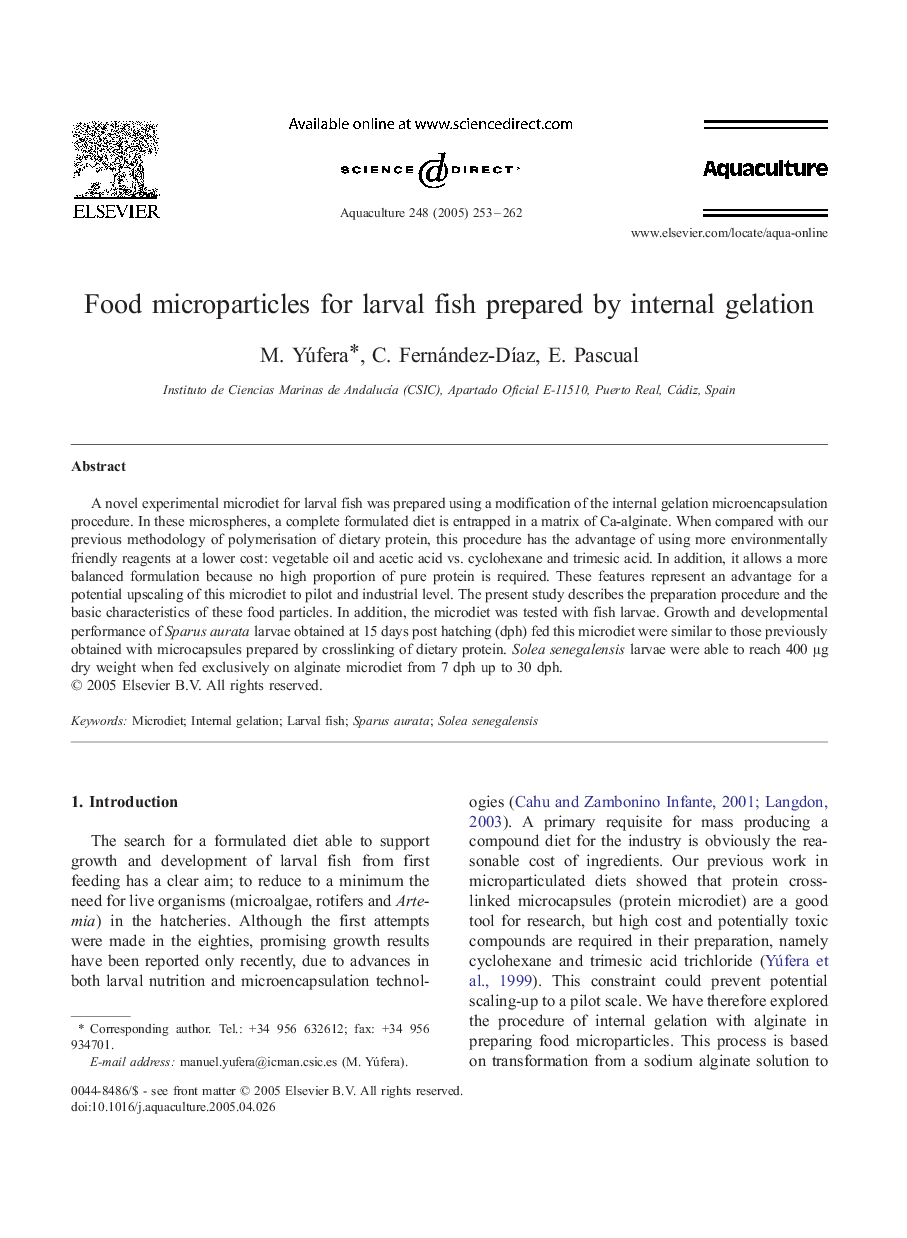| Article ID | Journal | Published Year | Pages | File Type |
|---|---|---|---|---|
| 8974830 | Aquaculture | 2005 | 10 Pages |
Abstract
A novel experimental microdiet for larval fish was prepared using a modification of the internal gelation microencapsulation procedure. In these microspheres, a complete formulated diet is entrapped in a matrix of Ca-alginate. When compared with our previous methodology of polymerisation of dietary protein, this procedure has the advantage of using more environmentally friendly reagents at a lower cost: vegetable oil and acetic acid vs. cyclohexane and trimesic acid. In addition, it allows a more balanced formulation because no high proportion of pure protein is required. These features represent an advantage for a potential upscaling of this microdiet to pilot and industrial level. The present study describes the preparation procedure and the basic characteristics of these food particles. In addition, the microdiet was tested with fish larvae. Growth and developmental performance of Sparus aurata larvae obtained at 15 days post hatching (dph) fed this microdiet were similar to those previously obtained with microcapsules prepared by crosslinking of dietary protein. Solea senegalensis larvae were able to reach 400 μg dry weight when fed exclusively on alginate microdiet from 7 dph up to 30 dph.
Related Topics
Life Sciences
Agricultural and Biological Sciences
Aquatic Science
Authors
M. Yúfera, C. Fernández-DÃaz, E. Pascual,
